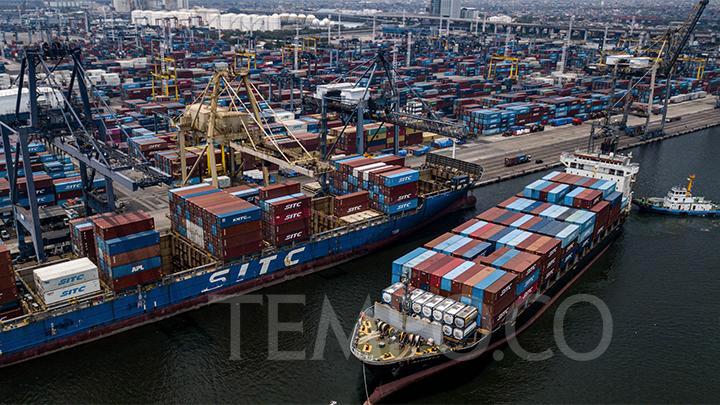Flood of Imported Goods Harms Domestic Industry
Translator
Editor
28 June 2024 16:51 WIB

TEMPO.CO, Jakarta - The influx of imported goods is reportedly harming domestic industries, including textiles. Finance Minister Sri Mulyani Indrawati stated that the government has been taking various measures to protect the textile industry through the imposition of Anti-Dumping Duties (BMAD) and Safeguard Duties (BMTP).
The state treasurer mentioned that this issue was discussed in a cabinet meeting, and the Ministry of Finance is currently awaiting letters from the Ministry of Trade and the Ministry of Industry to reassess these regulations, particularly concerning anti-dumping on imported goods.
"The Ministry of Finance will respond by taking steps in accordance with the law, which may involve re-imposing duties or other measures," Sri Mulyani said in a press conference on Thursday, June 27, 2024.
Sri Mulyani emphasized that this effort is aimed at providing fair and reasonable protection for domestic industries against unfair competition, especially due to the influx of goods from countries with significant trade surpluses.
Head of the Fiscal Policy Agency, Febrio Kacaribu, stated that to protect domestic textile products, the Ministry of Finance has implemented various fiscal policies. Currently, they are monitoring the situation with other ministries and agencies regarding the surge in imports. "We want these fiscal instruments to continue to be used to protect domestic industries," he said.
The fiscal instruments in question comply with the Agreement on Anti-Dumping and the Agreement on Safeguards under Government Regulation No. 34 of 2011. If there is a surge in imports from other countries, Febrio said that anti-dumping duties on imports from those countries could be higher than general tariffs.
Anti-dumping duties on polyester fiber clothing have been repeatedly imposed since 2010, with the most recent policy established in 2022 and effective until 2027. Additionally, safeguard duties on imported yarn and curtain products will continue until May 2026, and on imported clothing until November 2024.
The Ministry of Finance has also implemented general import duties for textile products. The details are as follows: fibers at 0-5 percent, yarn at 5-10 percent, sheet fabric at 10-15 percent, carpets at 22-25 percent, curtain tariffs at 25 percent, and ready-made clothing at 20-25 percent.
Regarding the anti-dumping regulations, Febrio said these measures address unfair trade practices that could harm domestic industries. "Typically, this occurs in the form of a surge in import volumes, thus necessitating anti-dumping and safeguard duties," he said.
ILONA ESTHERINA
Click here to get the latest news updates from Tempo on Google News























